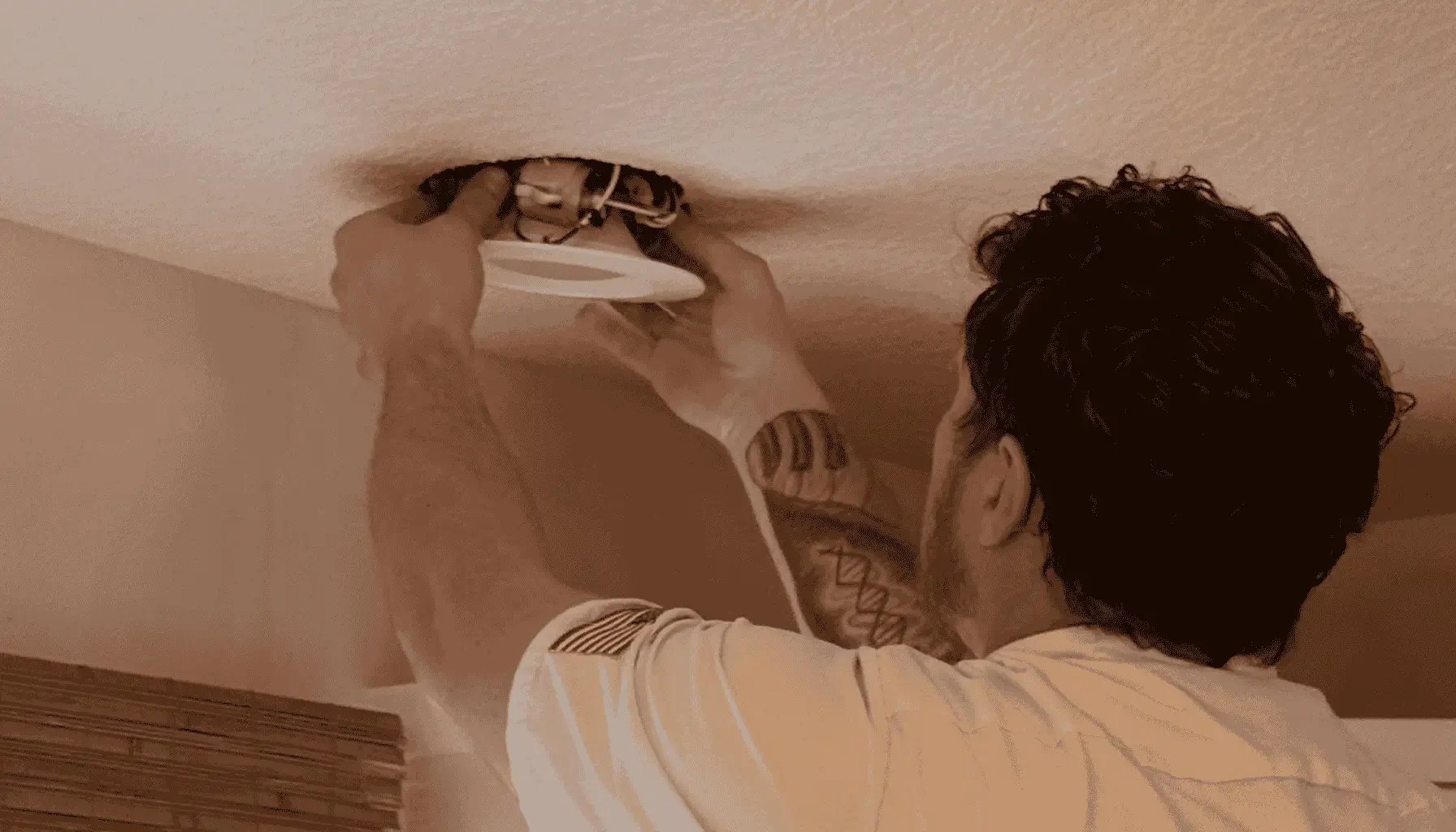
Rewiring a home is no small task. It takes time, planning, and the right people to do it safely. Most homeowners choose to rewire because they want peace of mind, whether that’s making sure the house is safe, updating old systems, or staying ahead of future problems. The whole process can feel overwhelming when you don’t know the dangers that can accompany a rewire if not done properly.
At Integra Electrical, we’ve rewired hundreds of homes across Iowa, especially older homes that need extra care. When the job is done right, it makes a home stronger, safer, and more reliable. But when things go wrong, usually because of rushing or cutting corners, it can lead to problems that show up later and cost more to fix.
This article will help you spot common issues, understand why they happen, and give you a few ways to avoid them altogether.
Before the end of this article, you’ll learn:
- What can go wrong during a home rewire
- Common Mistakes with Rewiring
- How to avoid delays, safety risks, and costly mistakes
- What to look for in a contractor to ensure the job is done right
The Risks of a Bad Rewire
Sometimes, even when the lights work and the outlets look fine, problems are quietly building behind the walls. We’ve seen it more than once. Things look good on the surface, but the wiring underneath tells a different story.
Here’s what can go wrong:
- Too much power on one line: If the circuits aren’t balanced correctly, they can get overloaded. It’s kind of like plugging too many things into one outlet. Over time, that can cause breakers to trip or wires to overheat.
- Missing grounding: Grounding protects your home if something goes wrong. Without it, extra electricity has nowhere safe to go, which increases the risk of shocks or damage to appliances.
- Loose or rushed connections: When wires aren’t connected properly, they can slowly heat up. That can lead to sparks (we call that arcing), damage behind outlets, or even full electrical failure.
- Code violations: Electrical work has to follow certain safety standards according to the National Electrical Code. If those rules aren’t followed, your home might not pass inspection.
The bottom line? Wiring should always be done carefully and correctly. Small mistakes don’t always show up right away, but they usually show up later when they’re harder and more expensive to fix.
Common Mistakes We See in Rewiring
In most cases, the issue isn’t bad intentions. Rewiring problems usually happen because of inexperience, rushing, or trying to save money in the wrong places. Here are a few common mistakes we’ve come across:
- DIY or unlicensed work: Rewiring shouldn’t be done without the proper license. It takes knowledge, permits, and inspections to make sure the work is safe. When someone tries to do it themselves or hires a handyman, important safety steps are often skipped.
- Skipping the inspection stage: Every home has a different setup. Before any wiring is replaced, the existing system needs to be evaluated. If that doesn’t happen, older wiring issues or panel problems can be missed.
- Rushing to finish quickly: We understand everyone wants the job done fast. But when electricians rush, wires can end up in unsafe areas or get left unprotected. Those shortcuts don’t last. It’s important to be knowledgeable about the difference between independent electricians and electrical companies when it comes to big projects like rewiring.
- Using the wrong materials: We’ve seen jobs where connectors didn’t match, wires were too small, or cheaper parts were used. It might work for a while, but those materials usually don’t hold up. WAGOS are one of these cheaper materials. Despite being an easier and less expensive way of doing wiring, they are not as safe, durable, and reliable as wire nuts.
The key is having a clear plan and working with a team that takes the time to do the job right from the beginning.
The Cost of Fixing It Later
When a rewire isn’t done properly, fixing it often takes more time, costs more money, and causes more stress than doing it right the first time.
Here’s what we’ve seen happen:
- Extra labor and materials: Fixing someone else’s mistakes usually means longer hours, more materials, and added costs.
- Opening walls again: If the wiring wasn’t done right the first time, you may have to cut into finished walls again. That’s frustrating when everything was already patched and painted.
- Inspection issues: Work that doesn’t meet code can fail inspection. That delays other parts of a project and adds extra steps to get things corrected. If you are planning on selling your home, a failed inspection could mean not selling your home on time
- Double the stress: Rewiring once is enough. No one wants to go through it twice or pay for it twice.
Doing it right from the start saves time, money, and frustration.
How to Avoid These Headaches
The good news is that most rewiring issues can be avoided with a little preparation and the right team by your side. Here’s what we recommend:
- Work with a licensed electrician: A licensed professional will know the current code, pull the right permits, and do the work safely and legally.
- Find someone with experience in older homes: Older homes come with unique challenges. Find a licensed electrician who knows what to look for and how to work around older systems safely and efficiently.
- Start with a full inspection: Before pulling a single wire, your system should be fully evaluated. That helps catch hidden issues early and keeps surprises to a minimum. You don’t always need a full rewire, and an inspection with a licensed electrician will help you understand what needs to be rewired or fixed, saving you money and time.
- Ask questions: You don’t need to be an expert. A good electrician will explain what they’re doing and why, so you feel confident in every step of the process.
Planning a Rewire? Start Here.
When you work with a team that takes the time to communicate, plan, and do it right, the process goes more smoothly and the results last much longer.
If you're exploring what a rewire involves, this guide on the cost of rewiring can help you get a clearer sense of the road ahead.
If you’re thinking about a rewire, the best next step is to get informed. You don’t have to make a decision today, but having the right information can make the process a whole lot easier. We’re here to answer any questions you may have.
Dustin Ober is a licensed electrician on Integra’s installation team. Born and raised in Iowa, he brings four years of licensed experience and five years of dedication to the Integra family. Known by customers as professional and helpful, Dustin is dependable and always shows up ready to help. When he’s not working, you’ll likely find him outdoors—enjoying the same steady calm he brings to every job.
Topics:





